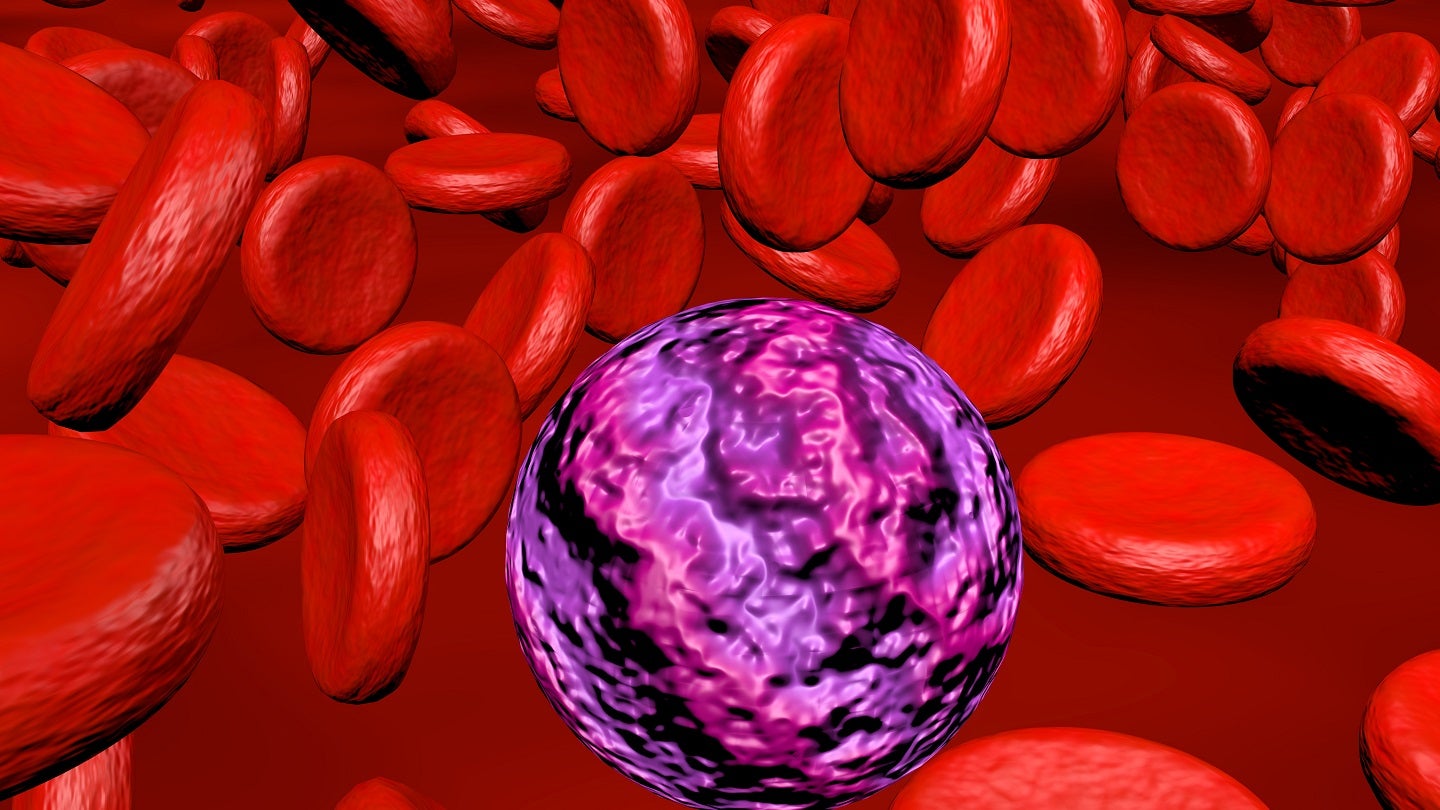
The US Food and Drug Administration (FDA) has cleared Terns Pharmaceuticals’ investigational new drug application for TERN-701 and the design of a Phase I trial of the drug for chronic myeloid leukaemia (CML).
The open-label, multicentre study is designed to assess the pharmacokinetics (PK), tolerability, efficacy and safety of the allosteric BCR-ABL tyrosine kinase inhibitor TERN-701.

Discover B2B Marketing That Performs
Combine business intelligence and editorial excellence to reach engaged professionals across 36 leading media platforms.
It will include patients who have been intolerant to previous TKI treatment, including asciminib, and those with chronic phase CML with confirmed BCR-ABL.
The two-part trial’s first portion will enrol around 24-36 adults with CML, who will be divided into up to five dose cohorts.
The initial dose will be 160mg of TERN-701 once-daily, which will later be increased to up to 500mg. There will also be the option to explore a lower dose of 80mg a day.
The Part II dose expansion portion intends to enrol around 40 patients. Based on the data from Part I, they will be randomised to receive one of two doses of TERN-701 once a day.

US Tariffs are shifting - will you react or anticipate?
Don’t let policy changes catch you off guard. Stay proactive with real-time data and expert analysis.
By GlobalDataPatient screening is expected in December this year and the initial data from the trial are due to be published in the second half of next year.
Terns Pharmaceuticals’ oncology chief medical officer Emil Kuriakose said: “We are particularly pleased with our Phase I trial design for TERN-701 as it will recruit chronic CML patients who experienced treatment failure on at least one prior second-generation TKI.
“This will allow us to offer a novel investigational allosteric inhibitor to CML patients in as early as their second line of therapy, where there are currently no approved allosteric inhibitors.
“Importantly, we were able to leverage emerging early clinical data from the ongoing Phase I trial in China conducted by our partner, Hansoh, to inform the dose selection for the CARDINAL Trial.”





